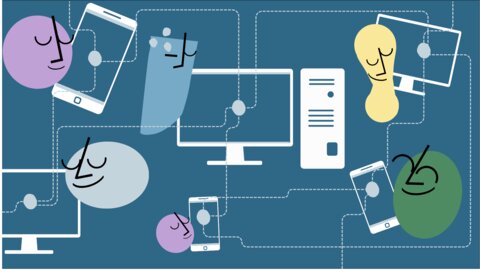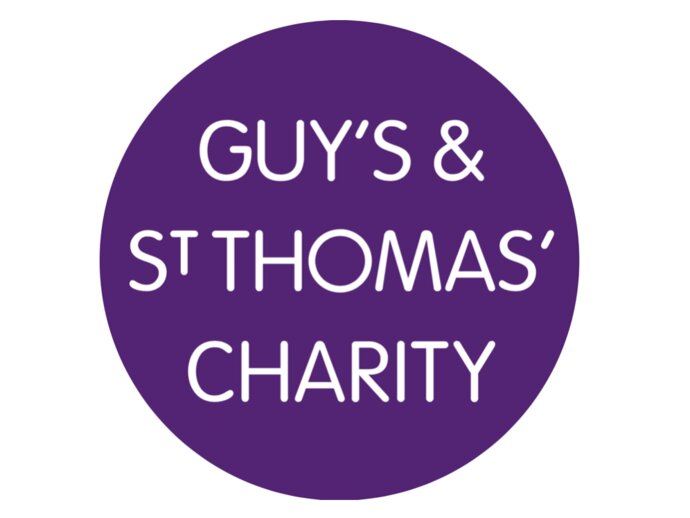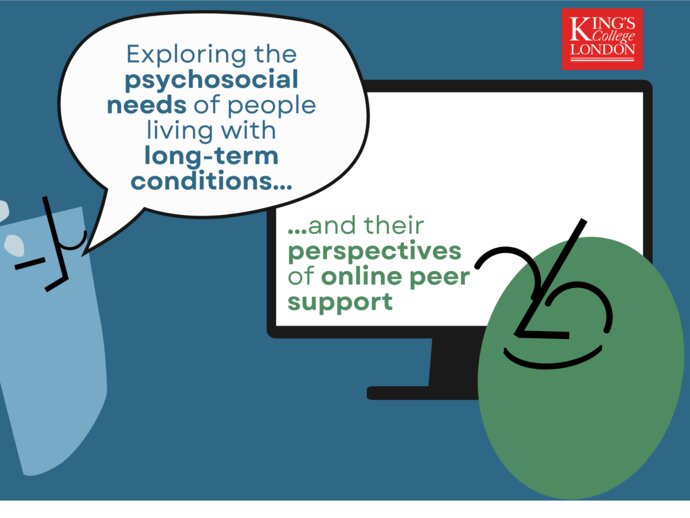People living with long-term conditions needed to make an online peer support platform a reality

A dedicated team of people with long-term health conditions has collaborated with King’s College London academics and software developers (BitJam) to create an online peer support platform for people living with any long-term physical health condition, regardless of their diagnosis. Our ultimate goal is to have an online peer support platform readily available that is dedicated to people with long-term conditions to learn about mental and physical wellbeing, improve self-management, and reduce experiences of low mood. A place where patients can connect, share, learn, and be heard. This platform is called CommonGround.
How do you test new interventions? How do we translate them from research to the real world?
When researchers are trying to get new interventions readily available to the public, they must gather evidence to show that the new intervention is:
- Safe.
- Something that patients like and will actually use.
- Effective – does it help to reduce symptoms? Improve happiness? Or increase patients’ confidence in managing their long-term condition?
Large groups of people are needed to test the intervention in randomised controlled trials so that the researchers can be confident in the results found. New interventions are also often compared with the existing interventions that are already available as part of someone’s usual care, to understand how the new intervention is different, and the specific benefits it could bring. Once a research team has gathered enough evidence to show that the new intervention is safe and brings benefits to people, they can then take the next steps in making the intervention available as part of routine healthcare. Before researchers can do these large research trials, they must do some smaller studies to help them understand how many people they need to test the intervention, and whether doing this research is possible and practical.
The next step in making CommonGround publicly available.
As we are in the early stages of testing our intervention, we are running one of these smaller studies, called a feasibility randomised control trial. This feasibility trial will help us to understand if it will be possible to run one of the larger studies to gather the evidence needed to show whether the online peer support platform will be of value to people with long-term conditions. We are running a three-month long study that will explore what people think of CommonGround. We will also compare our new online peer support platform to the existing NHS Mental Health webpages. For our current study, we will ask a large group of people with long-term conditions to be involved: we want to ask 100 people to try out the new intervention and we want to gather feedback from 50 people about the NHS Mental Health webpages.
Participants will complete questionnaires about their mental and physical health at the beginning, middle, and end of the trial. Some participants will also be interviewed, so that we can delve deeper into their thoughts of the platform, the NHS webpages, and how they found the overall experience of taking part in our research study. When we have all of this information from our participants, we will then be able to understand how to improve the peer support platform and how we will run future studies to gather more evidence.
I have a long-term condition - can I get involved in the research?
Yes! We have created a detailed information sheet that tells you everything you need to know about participating in our research. If you are interested in participating, click here: https://bit.ly/commongroundresearch. It might be useful to discuss the information with family or friends to help you decide if joining our research is something that you would like to do. You may also wish to tell your GP that you are participating in our research. If you have any questions, please email the research team at commonground [at] kcl [dot] ac [dot] uk.
We are specifically looking for people who:
· Are an adult (over 18) who can communicate and understand English and has access to the internet.
· Are living with any long-term physical health condition(s), but are not living with dementia
· Do not have a diagnosis of a severe mental health condition(s), including bipolar disorder, psychosis, post-traumatic stress disorder, or schizophrenia.
We know that it can be frustrating and disappointing if you cannot participate in our research at the moment. We hope that in the future, our peer support platform will be as widely available as possible. However, when we are gathering evidence about our intervention, it is important that we test the intervention with the specific group of people that we are hoping to help – for our study, this is people with a long-term condition and some symptoms of low mood. If you have any questions, please reach out to the King’s College London research team via email: commonground [at] kcl [dot] ac [dot] uk.



